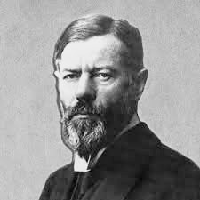{{ชื่อ}} ประเภทบุคลิกภาพ MBTI
บุคลิกภาพ
"Abu Hamid, Al-Ghazali (Algazelus) ประเภทบุคลิกภาพประเภทใด Abu Hamid, Al-Ghazali (Algazelus) เป็นประเภทบุคลิกภาพ INTP ใน mbti, 5w4 - SO5 - 541 ใน Enneagram, RCUEI ใน Big 5, ILI ใน Socionics"
Honestly I can't say for sure except that he was NT. Imam Al Ghazali was described as Choleric-Melancholic. He was described by his teacher Imam Al Juwaini as "a sea in which you can drown". This was early on before he was fully integrated. Imo this indicates to his vast expanse of knowledge and deeply critical mind.. so is that Ne in combination with Ti or Ni combined with Te? He also become highly critical of himself and questioned his integrity later on so Is this perhaps tertiary or inferior Fi? He didnt seem to be introverted early on. That came later in life when he essentially went off the radar and found himself sweeping mosques. Was he an ENTP who integrated into an ISFJ side? But then his work does have a very deliberate structure to it in the way he extrapolates meaning going down in levels dividing and progressing step by step in a manner more reminiscent of Te than the more random style of Ti..
ชีวประวัติ
Al-Ghazali (full name: Abū Ḥāmid Muḥammad ibn Muḥammad al-Ghazālī; c. 1058 – 19 December 1111) was one of the most prominent and influential philosophers, theologians, jurists, and mystics of Sunni Islam. He was of Persian origin. He revised major aspects of existing Islamic philosophical thought and succeeded in making faith and rational thought more compatible without compromising one or the other. He served as rector of a chain of prestegious Islamic Universities across the Muslim world which provided a symbiosis of traditional Islamic sciences and physical as well as philosophical sciences. The teachings of Al-Gazel as he was known in Europe had a profound impact on notable medieval Christian academics such as Thomas Aquinas who also sought to strike a balance between science and religion.
บุคลิกภาพ correlate

Averroes / Ibn Rushd

Adnan Ibrahim

Abu Nasr al-Farabi (Alpharabius)

Ibn Arabi

Mustapha Mahmoud

Abai Qunanbaiuly

Allama Muhammad Iqbal

Moses Maimonides





